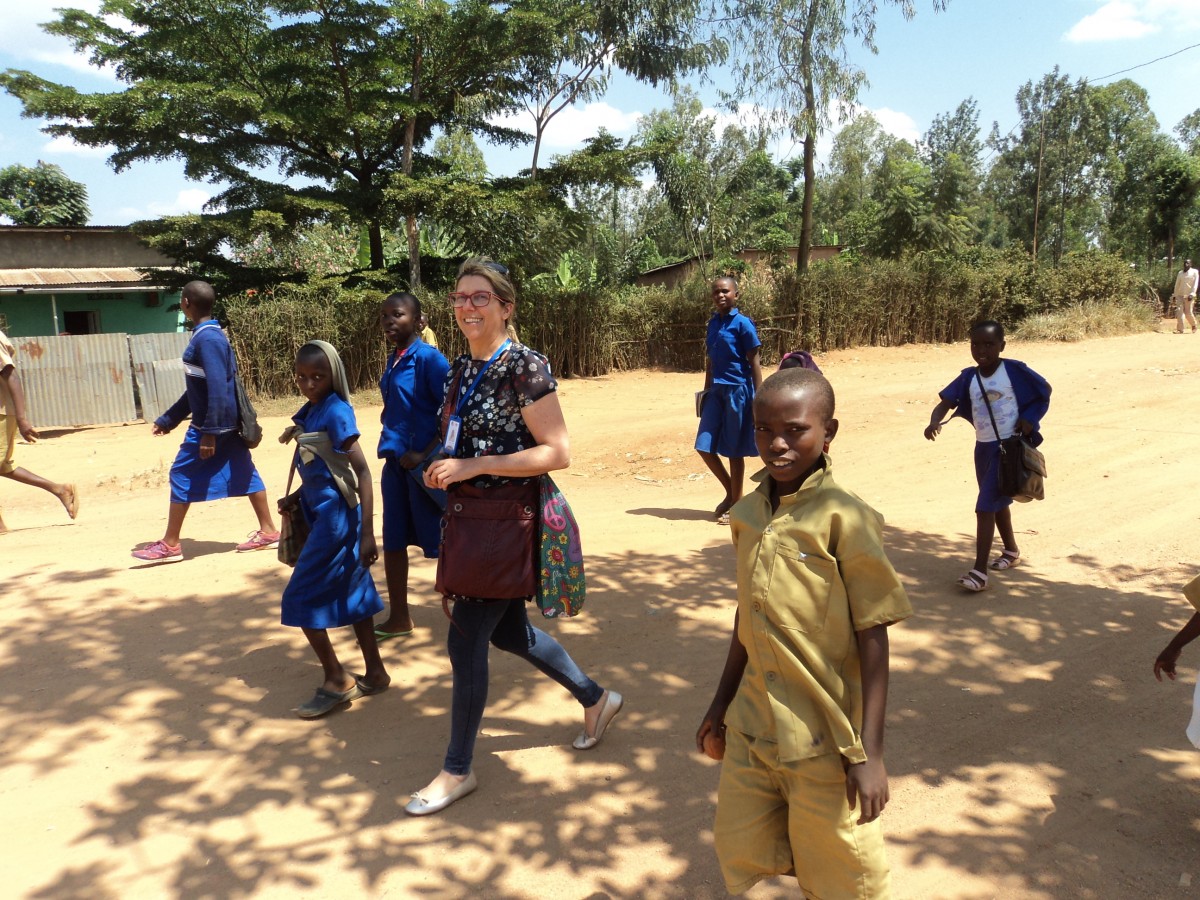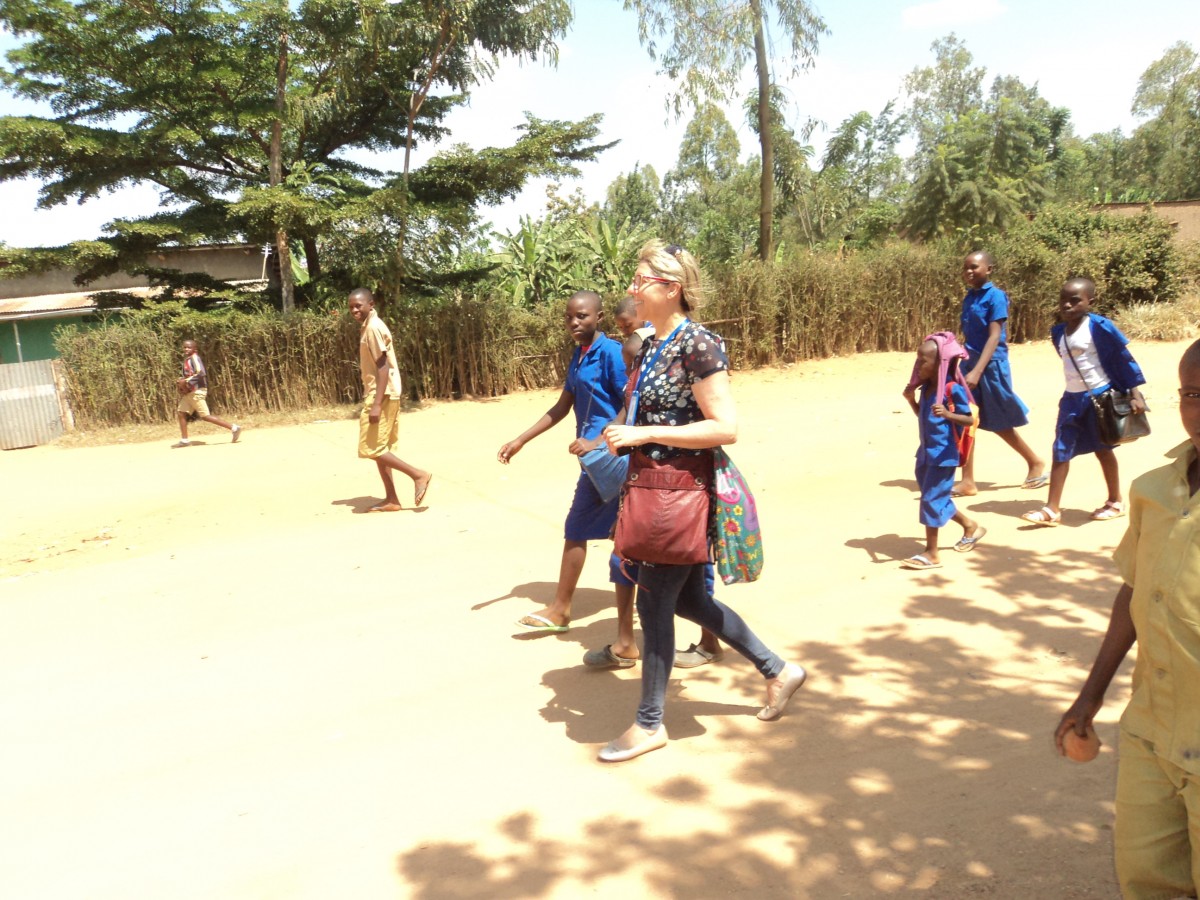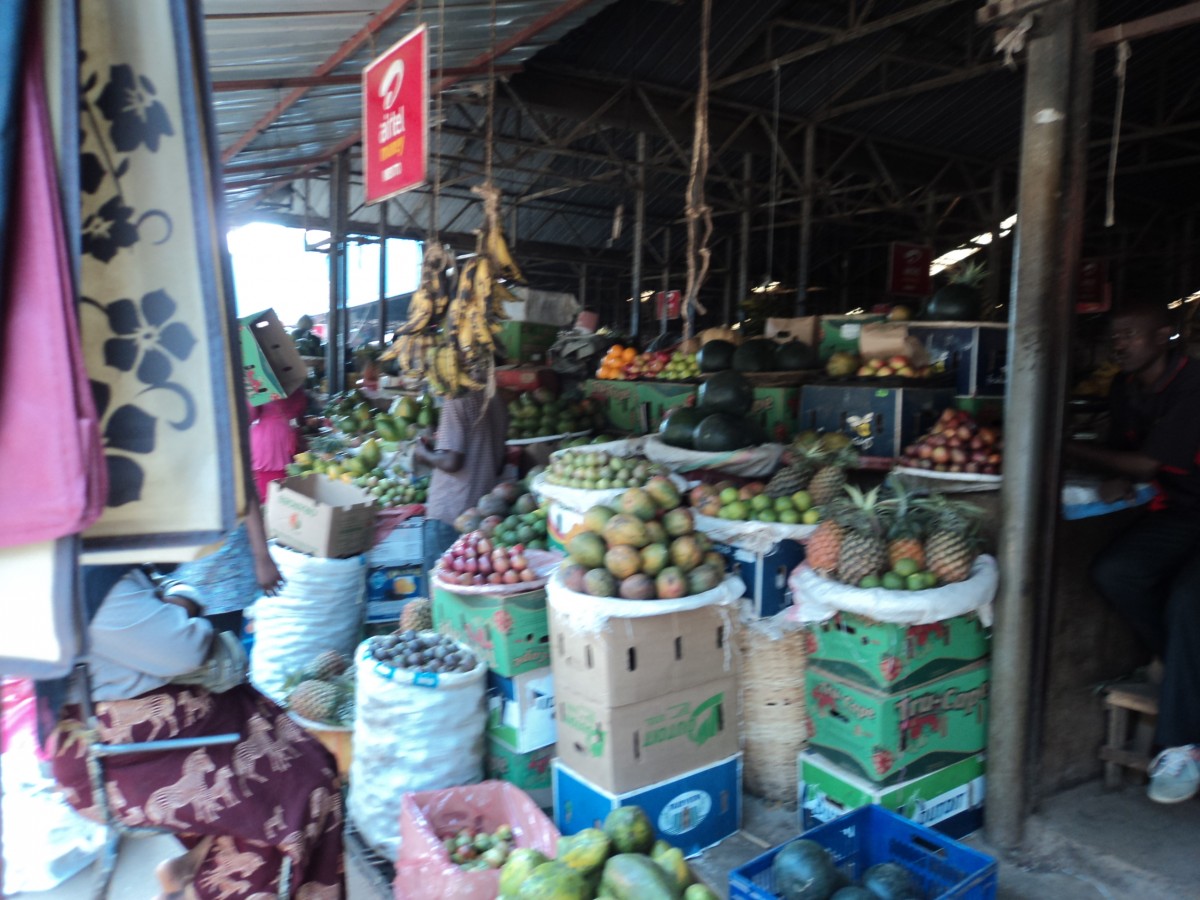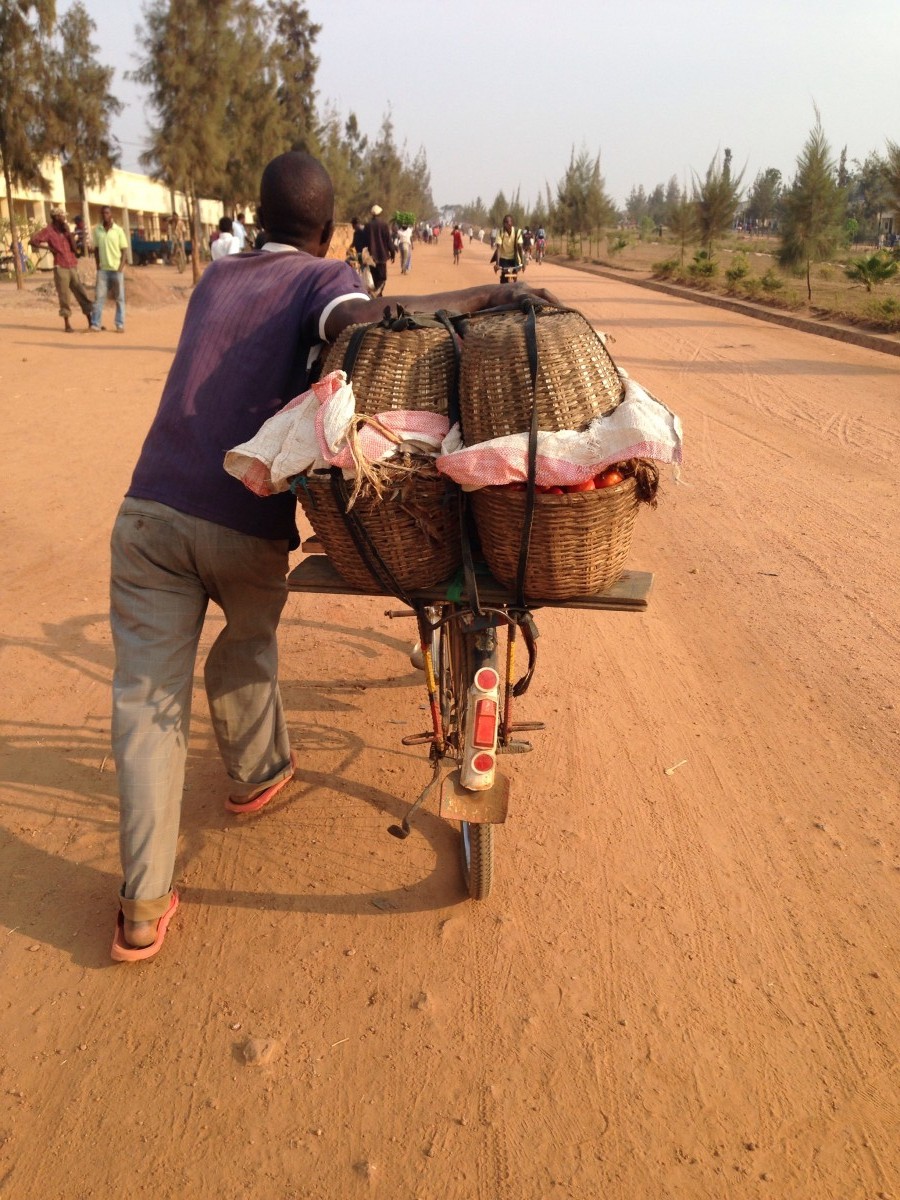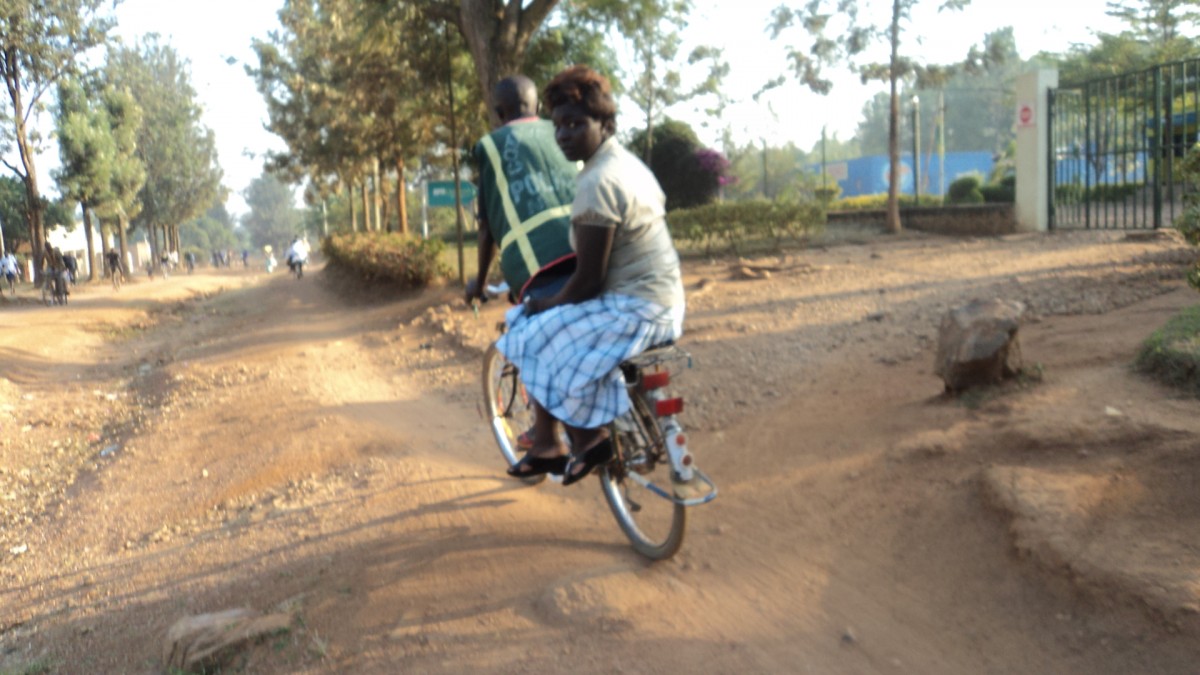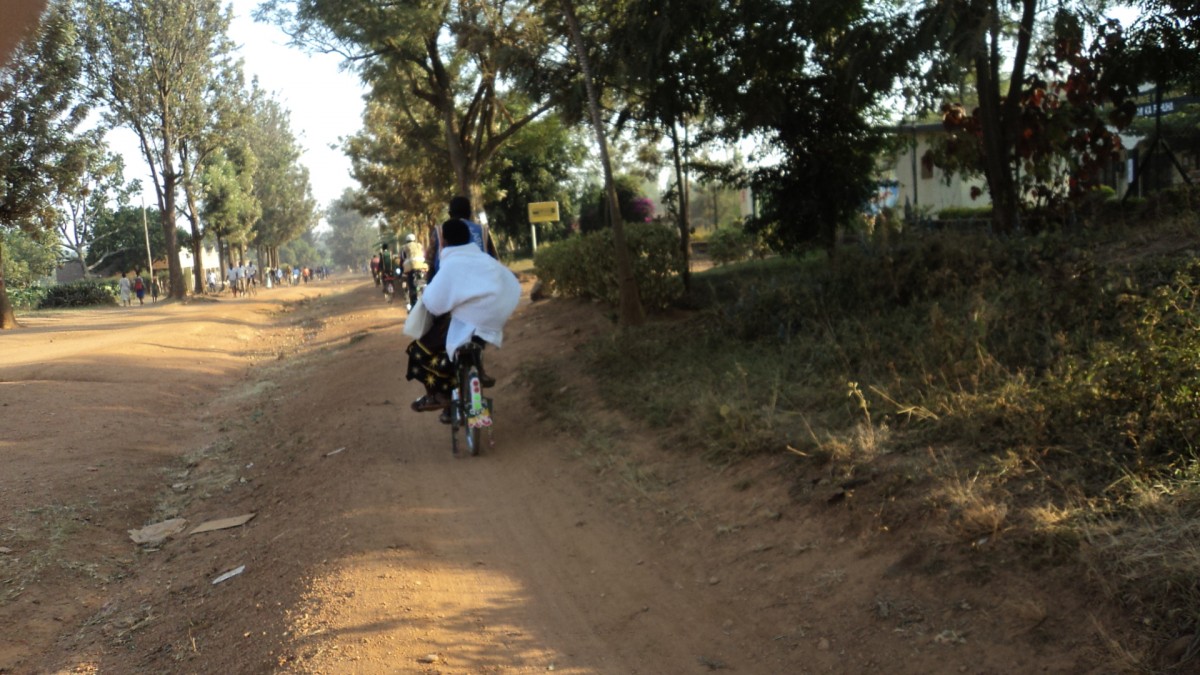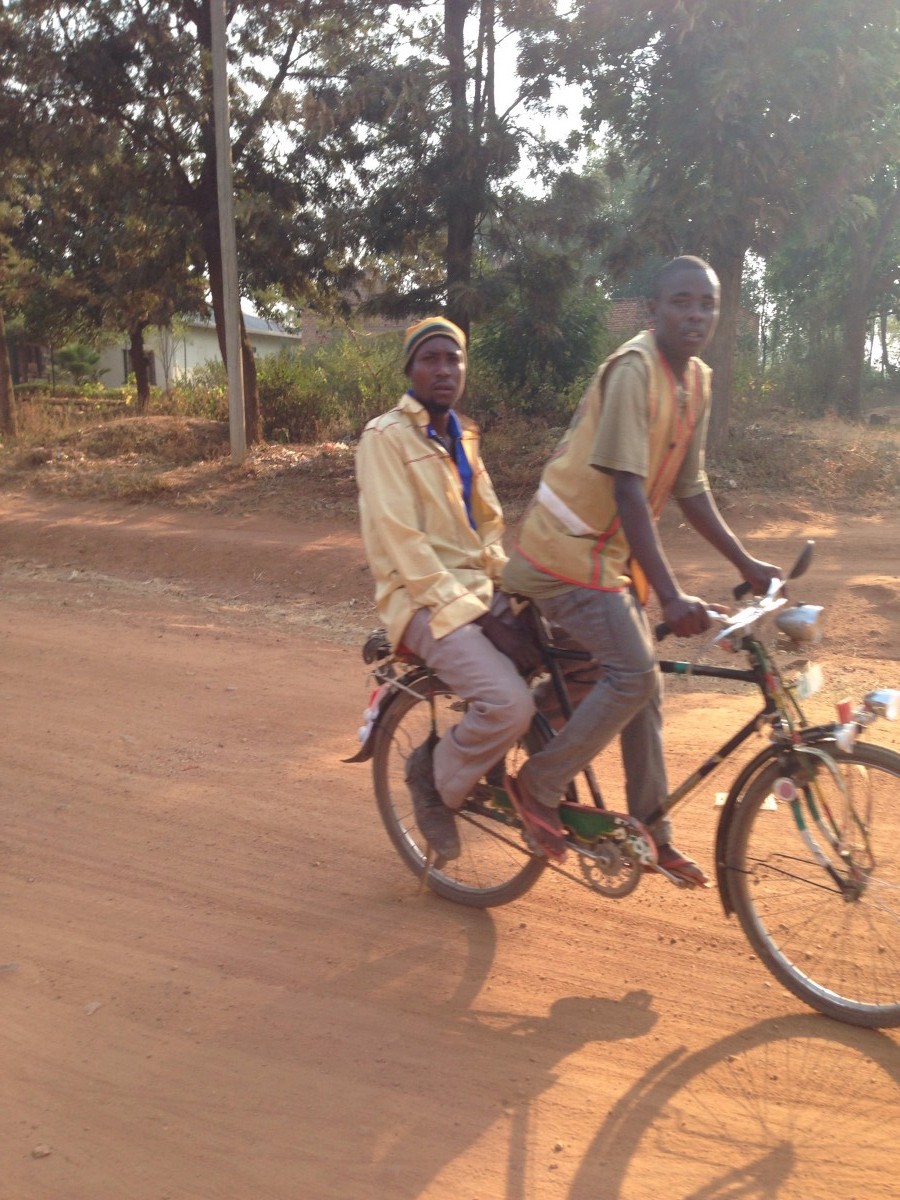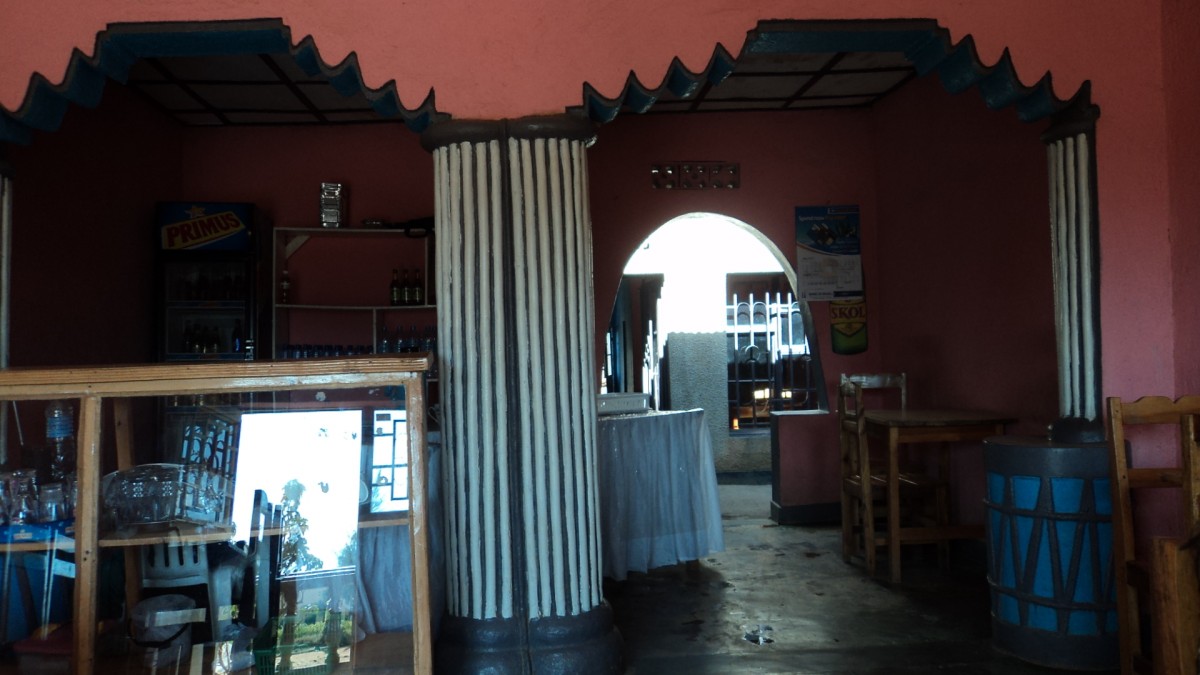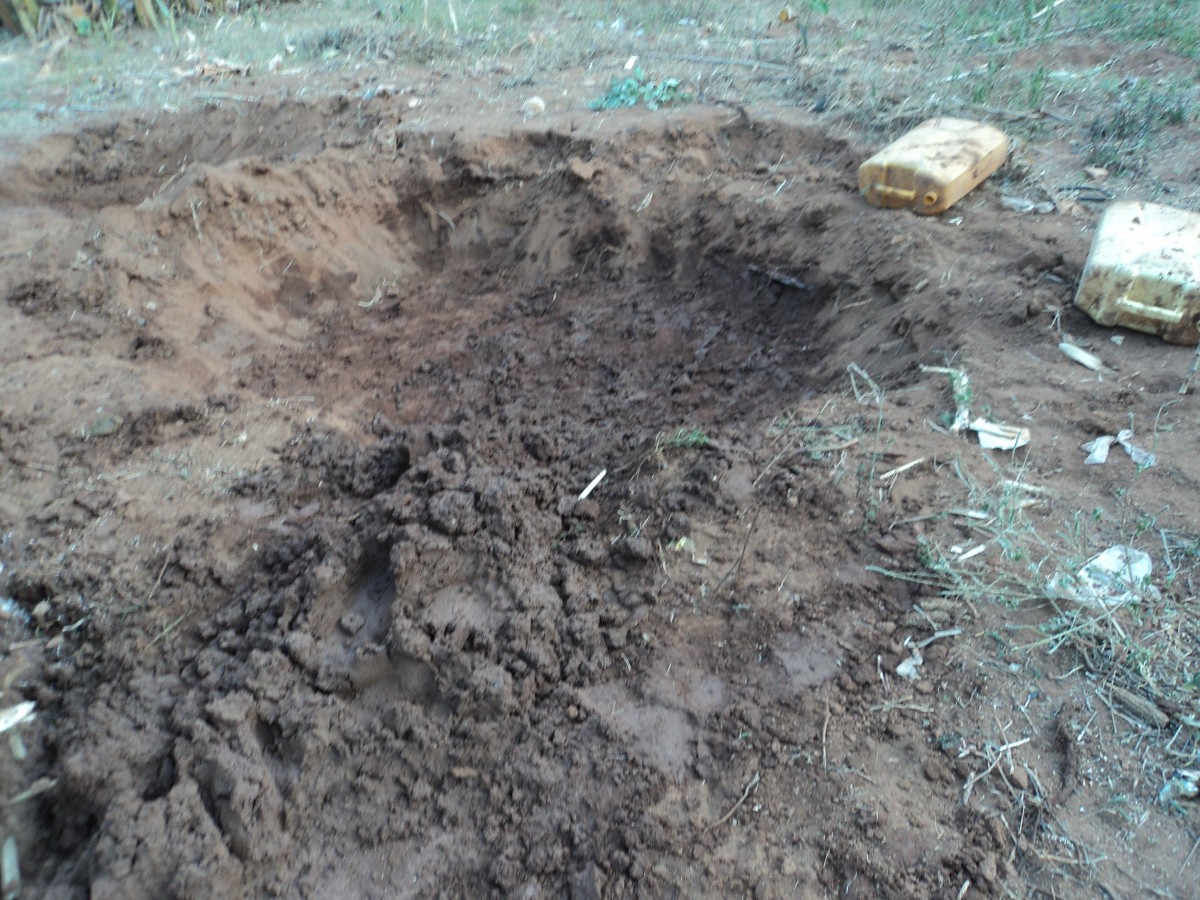I was always followed by the children after the school on my way home. I enjoyed it and I was always looking forward to that moment. They had that special way to engage with me. It was a simple thing like – “Good morning!” Although it was “Good evening!” Or “How are you?” And suddenly I could feel a little hand holding mine. We walked hand in hand until they had to leave to take their way home. How sweet their company was! I loved it! Some children could develop a conversation with me and also be the interpreter for other children.
Category Archives: Rwanda
LIVING COST IN RWANDA
I am not sure how much money you need per day to live in Rwanda. But while in the country I wanted to have my own experience of how it is to be a Rwandan. So, I would like to share the cost of a few things. Currently £1 is about RWF 1104.00.
 -Moto taxi price in Kigali can be very challenging for a Muzungu (a white person). Prices can vary between RWF 300 and RWF 1000. Don’t forget to negotiate and agree the price of the ride in advance. RWF 300 each way is a fair price.
-Moto taxi price in Kigali can be very challenging for a Muzungu (a white person). Prices can vary between RWF 300 and RWF 1000. Don’t forget to negotiate and agree the price of the ride in advance. RWF 300 each way is a fair price.
-A two-litre-bottle of water is between RWF 400 and RWF 1000. It is a good deal to know your area and local people.
-A samosa. It is delicious! It tastes like “Brazilian pastel” – RWF 150.
-Yogurt – RWF 400
-A toilet paper – RWF 200
-Bread (sliced) – RWF 100
-I love nibbles like peanuts (roasted and salted) – RWF 600 for a small container.
-Fruit – 4 bananas – RWF 100 and 2 avocados – RWF 100
-Self service lunch – RWF 1000
-A pack of popcorn in the bus station – RWF 100. The smell of popcorn usually drives me crazy. I love it! It is free!
-Bus ticket from Kigali (Kimirongo) to Ruhuha – RWF 1.300
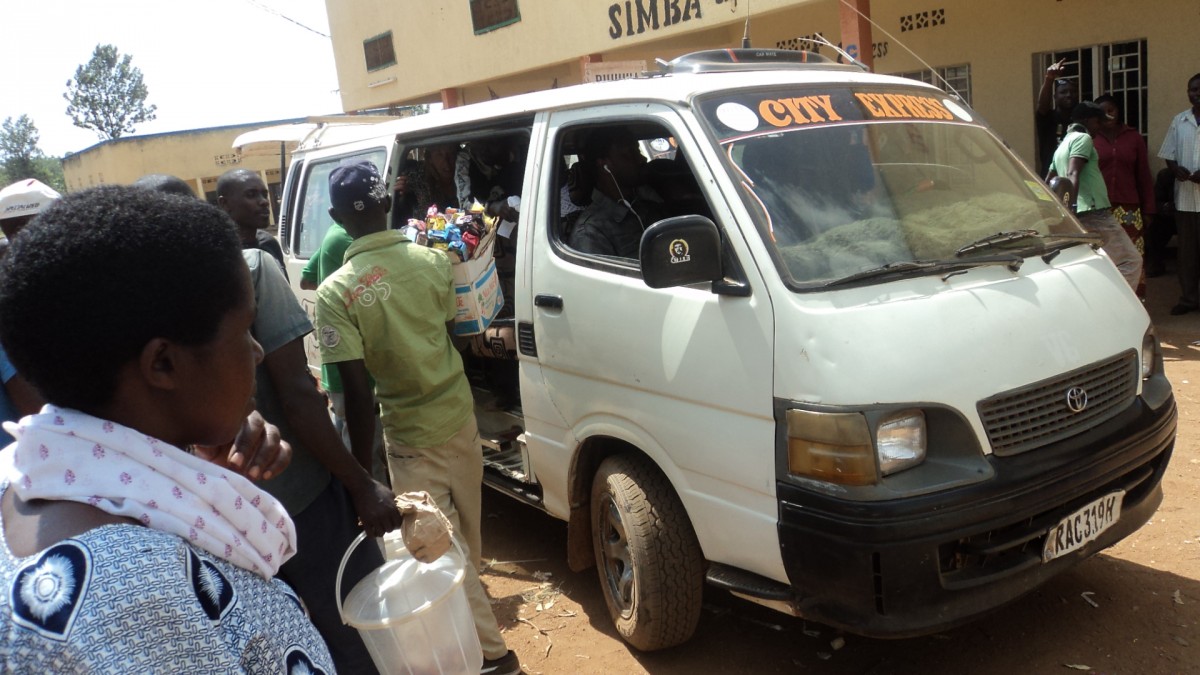 -Bus ticket in Kigali from Remera to Kimirongo – RWF 200
-Bus ticket in Kigali from Remera to Kimirongo – RWF 200
-Bus ticket from Kigali (Remera) to Rwamagana RWF 1.050
The prices are displayed on the bus. I hope the information is helpful!
MY KINYARWANDA
It is a challenge and commitment to learn a new language, but with some strategies and resources in place it is possible to learn how to speak in Kinyarwanda.
I recommend a phrase book. It is similar to a dictionary, but for phrases. It is helpful to memorise sentences and phrases that you need daily. I call it a “survival language.” I also have an app on my phone that helps me to work on my pronunciation and get familiar with Kinyarwanda vocabulary.
However, if you want to learn how to speak in Kinyarwanda, you have to practice the language out of a book. And if you want to learn it quickly, well, you have just to start it. Practice the language everyday. With fulltime dediction the whole process will take longer than 30 days.
MY UNFORGETTABLE SUMMER HOLIDAY
There is an article published in TES magazine and website about my summer holiday in Rwanda. It is just a glimpse of what it was as I find it very hard to summarise in few words that unique experience.
Your views scotletters@tesglobal.com
News | Published in TESS on 28 August, 2015
Last Updated:27 August, 2015
Section:News
WHILE IN RWANDA
These are some of the questions I was asked:
1- Would you move to Rwanda?
2- Would you come back?
3- How do I know my talents?
4- How to not disappoint my family if I choose a profession that is not the one that they want me to follow?
5- How long does it take to get married in Scotland?
6- What do I have to do to go abroad?
7- What are you going to leave for us that will inspire us, that will remind us that you were here?
WHAT A BIKE CAN TAKE
Bike is a synonym of status in Ruhuha, Rwanda. It is either a means of transport for commercial or personal purposes. It is an economic source and to have a bicycle is a dream that many people wish to come true in their life.
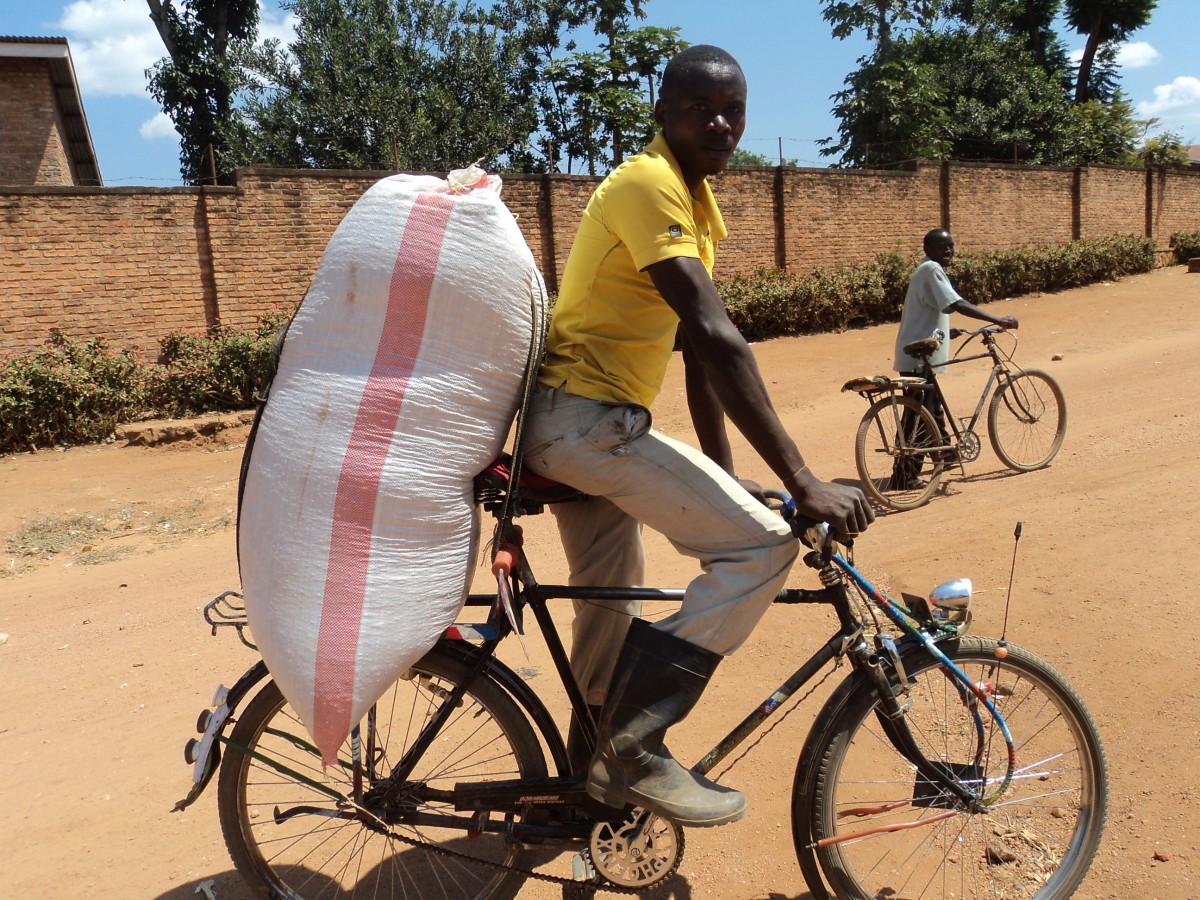 Bicycles have become the best transport to get students to their schools.
Bicycles have become the best transport to get students to their schools.
Peddling is an asset in Ruhuha and people depend on the bikes heavily.
A BIKE
A BIKE RIDER
EATING OUT
When in Rwanda I did have quite a few opportunities to go to restaurants. However I realised that I did not have the patience to face the long waiting time to get the meal on the table. It was always easier to grab a couple of samosas in the closest shop. For this reason, many times I avoided being out for a meal. But I tried a self-service restaurant in Ruhuha. It was a quiet place to meet my colleagues and have a refreshing Fanta Citron.
INDIGENOUS WAY OF BUILDING
The rustic methods of construction with free, local materials is engineered to create simple architecture that is indigenous to the area, and which is deeply engrained in olden times.
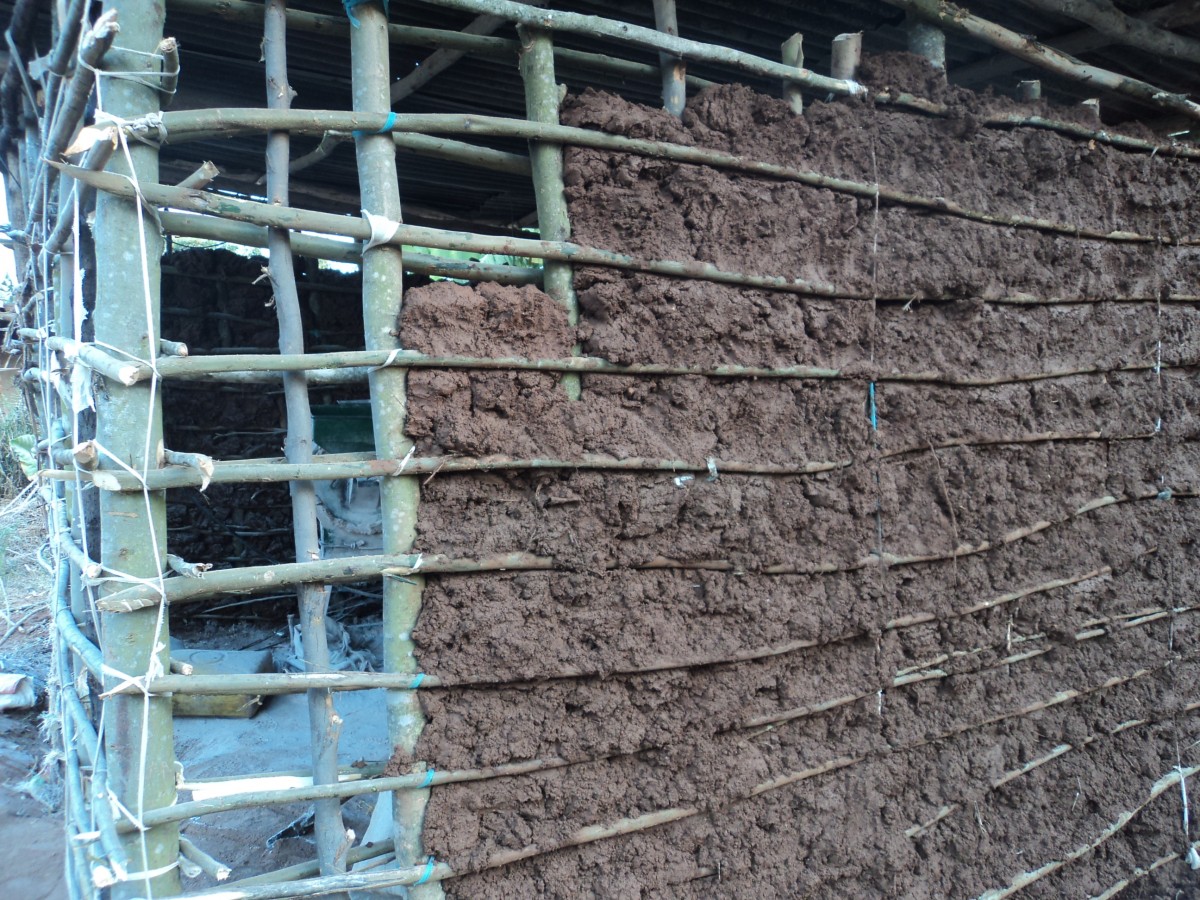
When I saw the local people preparing the muddy for this construction, I thought about my dad who was a builder in Brazil. Many times I saw him making the same type of muddy cake to set the bricks. And I am thinking where my dad’s knowledge came from.
This is my dad


